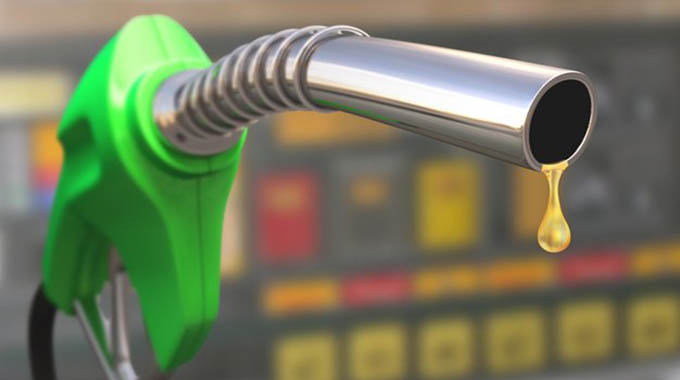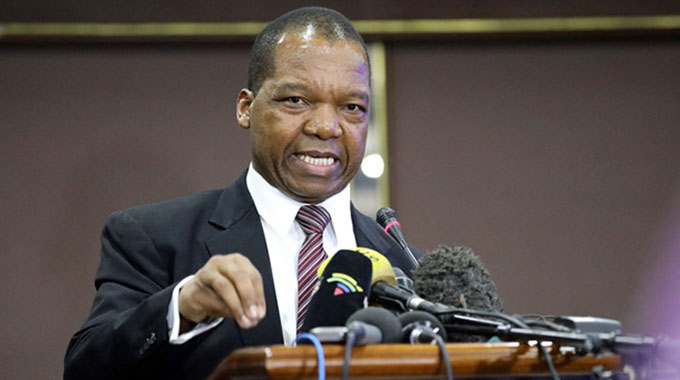‘Fuel price crash should benefit motorists’

Farirai Machivenyika Senior Reporter
Government is monitoring movements on the international oil markets to ensure that the country benefits from the falling prices of the commodity that has been experienced in the past few weeks.
Prices of crude oil fell below zero for a barrel for the first time in history following a general decline in the price since most countries started implementing lockdown measures to contain the spread of the Covid-19 pandemic.
A negative price suggests sellers were paying buyers to take deliveries in a bid to avoid incurring of huge storage cost.
Energy and Power Development Minister Fortune Chasi told a post Cabinet media briefing on Tuesday that Government was monitoring the situation with a view that Zimbabweans also benefit from the price decline.
“We don’t know how this will be in place and whether it will be sustainable for a considerable period but what I can assure you is that as Government, we expect that all those that bring fuel into the country will seek to ensure that the public of Zimbabwe benefits from the pricing that is existing at the moment,” he said.
“So we will take every necessary action to ensure that we don’t have people pretending that they are buying at old prices when we will be in a situation where prices have gone negative.
“We will of course keep watching the situation with a view to ensuring that where we can take advantage of buying at current prices, we do so and pass on the benefit to the public of Zimbabwe and we will in due course advise what those steps will be.”
Minister Chasi said the price of fuel locally was also affected by movements in the exchange rate and taxation but said the prices obtaining locally were still below those prevailing in neighbouring countries.
“Of course the complaint is the price of fuel has gone up which is true for the reasons that I have indicated but we also need to understand our situation that we are still at the bottom of the pile in terms of prices regionally creating opportunities for arbitrage,” he said.
As of yesterday crude oil was selling between US$18 and US$30 a barrel of 159 litres, a third to half of the pre-Covid-19 price, as storage facilities fill and reserves rise to unprecedented levels.
However, observers say with most motorists around the world limited or banned from driving, most airlines grounded or offering very reduced services, and the falling demand for heating oil in most developed countries as the northern hemisphere spring raises temperatures, demand is low.
But even those low prices mean that a litre of crude costs US$0,17 at the nearest to a standard price, and Zimbabwe does not buy crude oil, it buys refined petrol and diesel.
This means these prices will be falling, but at a lower rate. At the present fixed interbank exchange rate a litre of crude still costs $4,25, and the crude oil component in the final Zimbabwean price is not the largest input.
On top of the cost of the refined fuels, Zimbabwe has to pay in foreign currency shipping charges from refinery to Beira, the port charges there and the pumping charge across Mozambique.
These Mozambican charges, by treaty and custom, are always fair and reasonable, but are payable in foreign currency. Many of these transport charges are fixed charges, and are not affected by the movement of oil prices.
Once the petrol and diesel reaches the Feruka terminal near Mutare, these accumulated forex costs are converted to Zimbabwe dollars at the interbank rate.
Before the Covid-19 pandemic, the forex charge was close to US$0,60 a litre, and while it is now falling much of that potential gain has been absorbed by a rising exchange rate, temporarily fixed at $25 to US$1.
After converting the landed cost into Zimbabwe dollars the formula used by the Zimbabwe Energy Regulatory Authority to set the maximum retail price adds on the pumping charge from Feruka to Msasa in Harare, not a large charge, then the excise duty set by Parliament, the largest single local currency figure, then the mark-ups for oil companies and service stations.
Most of these charges are set as a percentage of the landed cost in Zimbabwe dollars. The oil companies bear the cost of road transport from Msasa to their service stations and the service stations have their own costs to pay out of their mark-ups before making a modest profit.
Generally fuel prices in Zimbabwe, because of all the transport and tax charges, are largely driven by the exchange rate fluctuations rather than swings in crude oil prices.










Comments